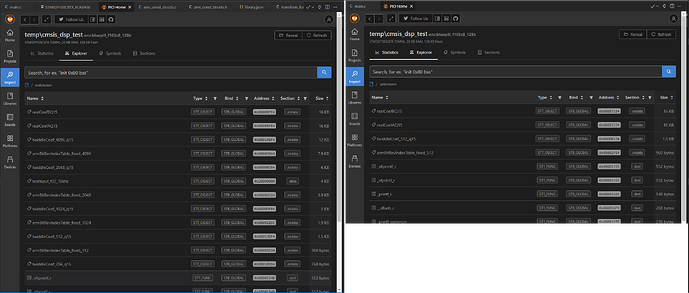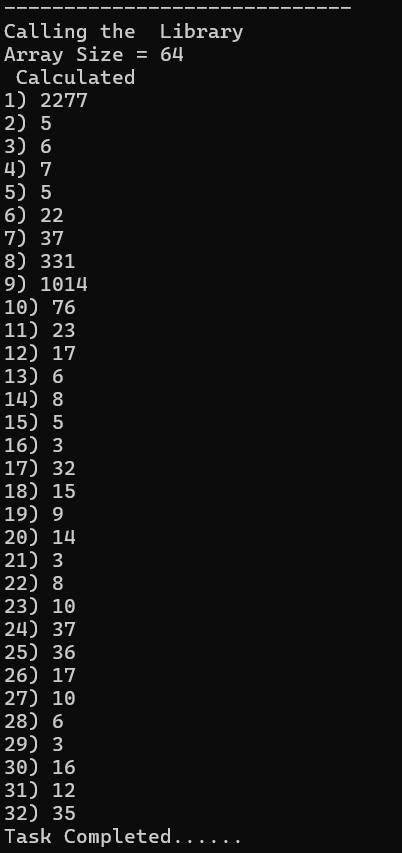Reason
- I want do to Real FFT using CMSIS DSP library (v1.16.2) via (
arm_rfft_init_q15() && arm_rfft_q15()function) and get memory overflow issueregion FLASH' overflowedcompilation error. - Idea here to move latest CMSIS DSP library (v1.16.2) and to all the memory optimizing option
MCU Details: STM32F103C8 (the board is a BluePill), 64KB Flash, 20KB RAM.
Question
- How to integrate the latest CMSIS-DSP Library(v1.16.2) into code?
- What are available memory optimization option available to make the real FFT to ## Reason
- I want do to Real FFT using CMSIS DSP library (v1.16.2) via (
arm_rfft_init_q15() && arm_rfft_q15()function) and get memory overflow issueregion FLASH' overflowedcompilation error. - Idea here to move latest CMSIS DSP library (v1.16.2) and to all the memory optimising option
MCU Details: STM32F103C8 (the board is a BluePill), 64KB Flash, 20KB RAM.
Question
- How to integrate the latest CMSIS-DSP Library(v1.16.2) into code?
- What are available memory optimization option available to make the real FFT
arm_rfft_q15()to work with this MCU?
Note: I am not sure this Real FFT from CMSIS-DSP library will work with this MCU.
Steps followed
Reference GitHub - ARM-software/CMSIS-DSP: CMSIS-DSP embedded compute library for Cortex-M and Cortex-A
- Create the folder
cmsis-dspunderlibfolder. - Copied
Include,PrivateInclude&Sourcefrom CMSIS-DSP Library(v1.16.2) tolib\cmsis-dsp - To solve compliation issue, copied all the files in the folder
lib\cmsis-dsp\PrivateIncludetolib\cmsis-dsp\Includefolder
Complete Code details at GitHub - Jaishankar872/9-STM32F1-Bluepill-STM32Cube-Latest-CMSIS-DSP-library
Error
Below the log during compilation, I think I missed many step during the integration step for the library
Archiving .pio\build\bluepill_f103c8_128k\lib558\libcmsis-dsp.a
Archiving .pio\build\bluepill_f103c8_128k\libFrameworkCMSISDevice.a
Linking .pio\build\bluepill_f103c8_128k\firmware.elf
c:/users/asus/.platformio/packages/toolchain-gccarmnoneeabi@1.70201.0/bin/../lib/gcc/arm-none-eabi/7.2.1/../../../../arm-none-eabi/lib/thumb/v7-m\libc_nano.a(lib_a-writer.o): In function `_write_r':
writer.c:(.text._write_r+0x10): undefined reference to `_write'
collect2.exe: error: ld returned 1 exit status
*** [.pio\build\bluepill_f103c8_128k\firmware.elf] Error 1
cc: @maxgerhardt
Earlier Discussion on similar topics Stm32cube framework - How to build with proper CMSIS DSP library - #2 by maxgerhardt

